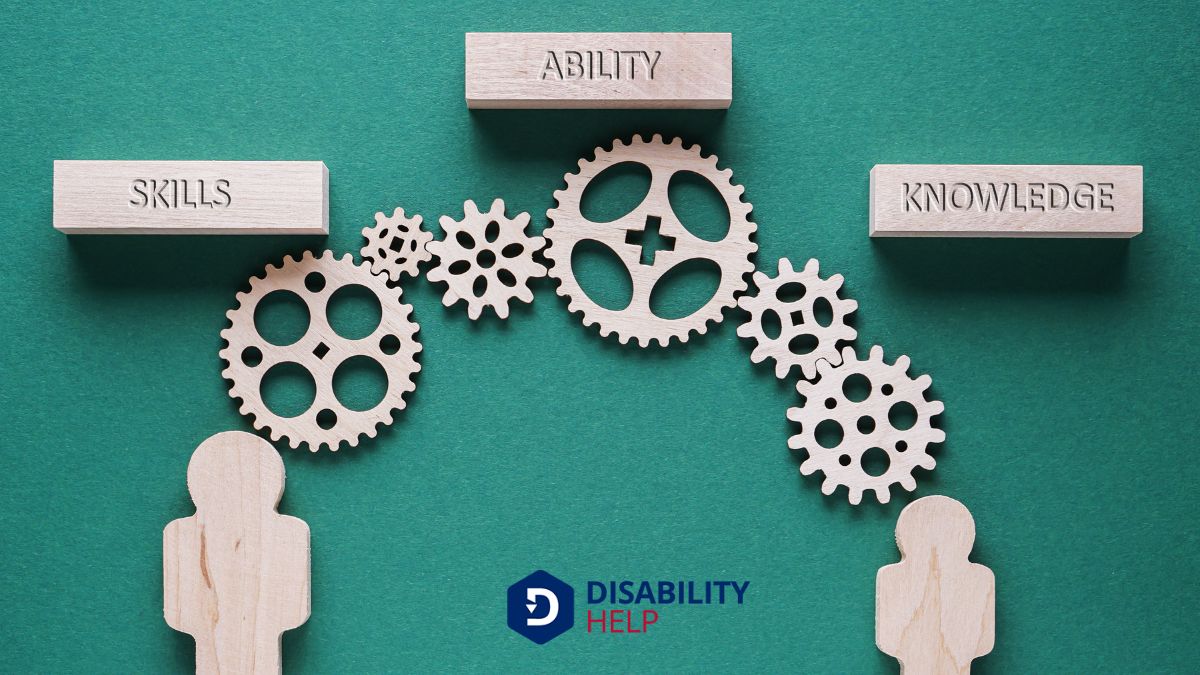Shifting from supported to competitive employmentJobs where individuals with disabilities work alongside non-disabled individuals, earning the same w... involves evaluating our skills, setting clear career goals, and building a strong support network. We should enhance our job search techniques by tailoring applications and using online platforms. Preparing for interviews and learning about company cultures will smooth our adaptation to new environments. Seeking feedback and staying adaptable are key to success. We’ll explore strategies to confidently navigate this shift and achieve fulfilling employment opportunities when we press forward.
Key Takeaways
- Assess personal skills and identify areas for growth to align with competitive employment opportunities.
- Set realistic career goals by mapping out steps that leverage strengths and passions.
- Build a strong support network for guidance and encouragement during the transition.
- Enhance job search techniques by tailoring applications and utilizing online networking platforms.
- Prepare for interviews by researching roles, practicing questions, and understanding negotiation strategies.
Assessing Your Skills and Abilities

How often do we take the time to truly assess our skills and abilities? We might find ourselves so focused on daily tasks that we overlook this essential step.
By evaluating our strengths and areas for improvement, we gain a clearer understanding of where we excel and where we need growth. This reflection empowers us to recognize our potential and align it with our career aspirations.
To begin, let's list our skills—both hard and soft. Are we adept at communication, problem-solving, or using specific software?
Feedback from colleagues or mentors can provide insights we might miss. Let's consider taking assessments or workshops to discover hidden talents.
Setting Realistic Career Goals
As we shift to competitive employment, setting realistic career goals starts with identifying our strengths and interests.
By focusing on what we do well and what excites us, we can develop a career plan that aligns with our aspirations and the job market.
Let's map out our path to success with clear, achievable steps that build on our unique talents.
Identifying Strengths and Interests
When starting on the journey to competitive employment, it’s essential that we take the time to identify our strengths and interests. Doing so helps us understand what career paths might suit us best.
Let’s begin by reflecting on tasks we enjoy and do well. Are we great at solving puzzles, communicating ideas, or working with our hands? These insights guide us toward roles where we can thrive.
Next, consider interests. What topics or activities ignite our passion? Whether it’s technology, helping others, or creative pursuits, aligning our careers with these interests increases job satisfaction.
We can also seek feedback from friends, mentors, or previous colleagues. They might see strengths we overlook. By knowing ourselves better, we lay the groundwork for a fulfilling and successful career change.
Developing a Career Plan
Creating a career plan is a pivotal step in our journey to competitive employment, as it helps us set realistic career goals and map out the path to achieve them.
We begin by identifying where we see ourselves in the workforce and what roles align with our strengths and interests. Let's research the skills and qualifications needed for these roles, then assess any gaps.
Setting short-term goals can guide us in gaining the necessary experience or education. It's important we stay flexible, adapting our plan as we grow and the job market changes.
Building a Strong Support Network
While moving to competitive employment, it's essential that we focus on building a strong support network. This network can consist of mentors, colleagues, family, and friends who understand our goals and challenges.
They'll offer guidance, encouragement, and feedback, helping us navigate this change with confidence. Let's reach out to those who've succeeded in similar paths and learn from their experiences.
Engaging with career counselors or joining professional groups can also provide valuable insights and connections. It's vital we communicate our needs and aspirations clearly, so our network can support us effectively.
By fostering these relationships, we create a foundation that not only aids in our immediate change but also provides ongoing career support and encouragement.
Let's nurture these connections for long-term success.
Enhancing Job Search Techniques
As we lean on our support network, it's important to focus on enhancing our job search techniques to maximize our opportunities in competitive employment.
First, let's update our resumes to highlight relevant skills and experiences. Tailor each application to reflect the specific job we're targeting. We can use online platforms like LinkedIn to network and uncover hidden job opportunities. Remember, reaching out to connections for advice or referrals can make a significant difference.
Additionally, let's set aside time to research companies thoroughly. Understanding their culture and values will help us identify where we fit best.
Job alerts can keep us informed of new openings, ensuring we don't miss opportunities. By staying organized and proactive, we'll increase our chances of finding the right role.
Preparing for Interviews and Negotiations
Preparing for interviews and negotiations is vital to securing the job we desire. Let’s focus on presenting our best selves and effectively communicating our value.
First, we should research the company and role thoroughly. Understanding their mission and culture helps us align our responses during the interview. Practicing common interview questions boosts our confidence and guarantees our answers are concise and relevant.
When it comes to negotiations, knowing our worth and being prepared to discuss salary and benefits is essential. We should consider our skills, experience, and the industry standards.
It’s important to enter negotiations with a clear idea of our priorities and flexibility. By focusing on these aspects, we can make a strong impression and advocate for ourselves effectively.
Adapting to a New Work Environment

Starting a new job is both exciting and challenging as we acclimate to a different work environment. We must learn the company culture, which includes understanding expectations, communication styles, and unwritten rules.
Let’s take the time to observe and ask questions to better understand our surroundings. Building relationships with colleagues can help us feel more at ease. Joining team activities or simply having lunch with coworkers offers a chance to connect.
We should also be open to feedback. Constructive criticism helps us grow and adaptA grassroots disability rights organization in the U.S. that focuses on promoting community-based se... more effectively.
It’s important to remember that everyone experiences a learning curve when starting fresh. By staying patient and proactive, we can successfully navigate this shift and become valued members of our new workplace.
Conclusion
In moving from supported to competitive employment, let's remember that we're not alone. By evaluating our skills, setting achievable goals, and building a supportive network, we create a solid foundation for success. Enhancing our job search techniques and preparing for interviews are essential steps. As we adapt to new work environments, let's stay open to learning and growth. Together, we can confidently navigate this journey and embrace the opportunities that lie ahead.






